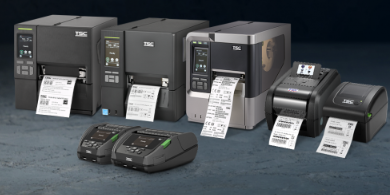
Connecting at Scale: Reaching Your Audience on Their Favorite Chat App
Customer communication has shifted dramatically toward messaging platforms over the past decade. Traditional email campaigns often struggle with declining open rates, while phone calls feel intrusive to modern consumers. Your audience spends hours daily on messaging apps, creating unprecedented opportunities for direct engagement. Smart businesses recognize this behavioral shift and adapt their communication strategies accordingly.
WhatsApp bulk message software represents a fundamental change in how companies approach customer outreach at scale. Unlike basic consumer messaging apps, professional-grade platforms enable businesses to manage thousands of conversations simultaneously while maintaining personalization. The difference between amateur messaging attempts and strategic communication lies in choosing the right technology infrastructure. Businesses that invest in proper messaging solutions see dramatically higher engagement rates compared to traditional channels.
The Messaging Revolution Changing Business Communication
Consumer Behavior Drives Platform Selection: Modern customers prefer messaging apps because they offer instant, convenient communication without the formality of email or phone calls. People check WhatsApp multiple times per hour, creating natural touchpoints for business interaction. This behavioral pattern means your messages reach customers when they’re already engaged and receptive. Companies that ignore this shift miss critical opportunities to connect with their audience naturally.
Engagement Rates Tell the Story: WhatsApp messages achieve open rates exceeding 90%, while email campaigns typically struggle to reach 25% open rates. Click-through rates on messaging platforms often surpass traditional digital marketing channels by significant margins. These statistics reflect genuine customer preference rather than temporary trends. Businesses leveraging messaging apps report stronger customer relationships and improved conversion metrics across various industries.
Building Your Messaging Infrastructure Foundation
API Integration Creates Professional Capabilities: The WhatsApp Business API transforms basic messaging into a sophisticated communication platform capable of handling enterprise-level requirements. Unlike consumer apps with message limits, API solutions support unlimited messaging volume with advanced automation features. Professional platforms integrate seamlessly with existing business systems, creating unified customer communication workflows. This technical foundation enables personalized messaging at scale without sacrificing individual attention.
Compliance and Security Standards: Professional messaging platforms ensure adherence to data protection regulations and WhatsApp’s business policies through built-in compliance features. Automated opt-out mechanisms protect customer privacy while maintaining positive relationships with recipients. Security protocols safeguard sensitive customer information during message transmission and storage. These protective measures build trust while enabling confident large-scale communication campaigns.
Personalization Technologies That Drive Results
Data-Driven Message Customization: Advanced messaging platforms analyze customer data to create highly personalized communication experiences that feel individually crafted rather than mass-produced. Variable insertion capabilities allow dynamic content modification based on customer preferences, purchase history, and behavioral patterns. Smart segmentation tools categorize audiences automatically, ensuring relevant messaging that resonates with specific customer groups. This level of personalization increases engagement while reducing unsubscribe rates significantly.
Behavioral Trigger Automation: Intelligent messaging systems respond to customer actions in real-time, creating timely communication that feels natural rather than intrusive. Automated workflows can send welcome messages, order confirmations, shipping updates, and follow-up surveys without manual intervention. These triggers maintain consistent customer communication while freeing up human resources for complex interactions. The result is improved customer satisfaction combined with operational efficiency gains.
Interactive Features That Transform Conversations
Rich Media Integration Capabilities: Modern messaging platforms support images, videos, documents, and interactive elements that create engaging customer experiences beyond simple text exchanges. Product catalogs showcase inventory directly within conversations, allowing customers to browse and purchase without leaving the messaging interface. Interactive buttons enable quick responses to common inquiries, streamlining customer service processes. These multimedia capabilities transform basic messaging into comprehensive customer engagement tools.
Chatbot Intelligence and Human Handoff: AI-powered chatbots handle routine customer inquiries instantly, providing 24/7 support without human intervention for common questions and simple transactions. When conversations require human expertise, smart handoff systems transfer customers to appropriate team members with full conversation context preserved. This hybrid approach combines automation efficiency with human relationship building. Customers receive immediate responses while complex issues get proper attention from qualified staff members.
Read also: Facial Recognition Technology: Shaping the Future of Identification
Campaign Management and Optimization Strategies
Bulk Messaging Execution Excellence: Professional messaging platforms enable simultaneous communication with thousands of customers while maintaining individual conversation threads and personalization elements. CSV upload capabilities streamline contact management and message customization for large-scale campaigns. Scheduling features optimize message timing based on customer time zones and engagement patterns. These operational capabilities ensure your messaging reaches maximum audience impact efficiently.
Key features that separate professional messaging solutions from basic alternatives include:
- Advanced segmentation tools for precise audience targeting based on demographics, behavior, and preferences
- Automated workflow capabilities that respond to customer actions with appropriate follow-up messaging sequences
- Comprehensive analytics dashboards tracking delivery rates, engagement metrics, and conversion performance across campaigns
- Integration capabilities with CRM systems, e-commerce platforms, and other business applications for unified customer data
- Template management systems ensuring consistent branding while enabling message personalization at scale
Performance Analytics and Continuous Improvement: Detailed reporting capabilities provide insights into message delivery rates, customer engagement patterns, and campaign effectiveness across different audience segments. Real-time analytics enable quick adjustments to messaging strategies based on performance data rather than assumptions. A/B testing features allow systematic optimization of message content, timing, and targeting parameters. These analytical capabilities transform messaging from guesswork into data-driven customer communication strategies.
Integration Ecosystem for Business Efficiency
CRM and E-commerce Platform Connectivity: Leading messaging platforms integrate directly with popular customer relationship management systems, automatically synchronizing contact information and communication history across platforms. E-commerce integrations enable order notifications, shipping updates, and customer service communications directly through messaging channels. These connections eliminate manual data entry while ensuring consistent customer information across all business systems. The result is streamlined operations with improved customer experience quality.
Workflow Automation Across Business Functions: Advanced messaging solutions connect with scheduling systems, inventory management platforms, and customer support tools to create comprehensive business communication workflows. Appointment reminders, stock notifications, and service updates can be automated based on real business events rather than arbitrary schedules. This level of integration transforms messaging from isolated marketing activity into central business communication infrastructure. Companies using integrated messaging report significant time savings and improved customer satisfaction scores.
Cost Effectiveness and ROI Optimization
Marketing Budget Allocation Benefits: Messaging platforms often deliver superior return on investment compared to traditional advertising channels by reducing customer acquisition costs and improving conversion rates. Click-to-WhatsApp advertising becomes more cost-effective when messages reach customers through preferred communication channels. Reduced bounce rates and higher engagement metrics translate directly into improved marketing efficiency. Smart businesses reallocate advertising budgets toward messaging platforms that demonstrate measurable performance improvements.
Operational Cost Reduction Opportunities: Automated messaging reduces customer service workload by handling routine inquiries without human intervention, allowing staff to focus on complex customer needs. Efficient communication reduces missed appointments, order confusion, and support ticket volume through proactive customer updates. These operational improvements lower business costs while improving customer satisfaction simultaneously. The combination of reduced expenses and improved revenue creates compelling business cases for messaging platform investments.
Scaling Communication Without Losing Personal Touch
Volume Management Without Quality Compromise: Professional messaging platforms maintain conversation quality even when handling thousands of simultaneous customer interactions through intelligent routing and automated response systems. Personalization features ensure each customer receives relevant, timely communication that feels individually crafted rather than mass-produced. Queue management capabilities prevent customer service bottlenecks during high-volume periods. These scaling capabilities enable business growth without sacrificing customer relationship quality.
Team Collaboration and Management Tools: Multi-agent messaging platforms enable team collaboration on customer conversations while maintaining conversation continuity and professional communication standards. Role-based access controls ensure appropriate team members handle specific customer inquiries based on expertise and authority levels. Internal notes and customer history tracking provide context for every interaction. These collaboration features enable consistent customer service quality regardless of which team member handles specific conversations.
Future-Proofing Your Communication Strategy
Emerging Technology Integration Readiness: Leading messaging platforms continuously evolve to incorporate new communication technologies and customer preference changes without requiring business system overhauls. API-first architectures enable custom integrations and feature extensions as business requirements evolve. Regular platform updates ensure compatibility with changing messaging app features and business communication standards. This technological flexibility protects messaging investments while enabling continuous improvement and expansion capabilities.
Regulatory Compliance and Adaptation: Professional messaging solutions automatically adapt to changing privacy regulations and messaging platform policies, protecting businesses from compliance violations and service disruptions. Built-in consent management and data protection features ensure ongoing regulatory compliance without manual oversight requirements. Policy update notifications keep businesses informed of relevant changes that might affect messaging strategies. This proactive compliance approach enables confident messaging expansion into new markets and customer segments.
Conclusion
Messaging platforms represent the most significant shift in customer communication since email adoption, offering unprecedented opportunities for businesses willing to adapt their engagement strategies. Professional messaging solutions enable personalized communication at massive scale while maintaining the intimate, conversational experience customers prefer over traditional marketing channels. The combination of high engagement rates, cost effectiveness, and operational efficiency makes messaging platforms essential infrastructure for modern customer relationship management. Take action today by evaluating your current communication strategy and exploring how professional messaging platforms can transform your customer engagement results.



